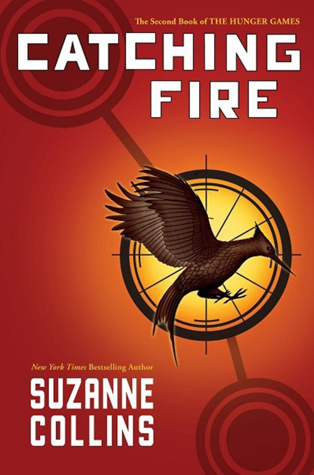TL;DR
In "Catching Fire," Katniss Everdeen returns home after winning the Hunger Games, only to face new challenges and a brewing rebellion against the Capitol, complicating her relationships and survival.

Get full Book
What is Catching Fire about
"Catching Fire," the second installment in Suzanne Collins' Hunger Games trilogy, deepens the narrative established in the first book. Following her unexpected victory alongside Peeta Mellark, Katniss returns to District 12, where she grapples with her altered relationships with her friends and the growing tension in Panem. Her act of defiance during the Games has sparked unrest, stirring the Capitol's wrath and igniting the flames of rebellion. As Katniss and Peeta embark on the Victory Tour, they must convincingly present their romance to protect themselves and their loved ones from the Capitol’s retribution. The book explores themes of sacrifice, survival, and the complexities of trust in a dystopian world where every choice has dire consequences.
Catching Fire 5 Key Takeaways
Victory Tour Preparation
Katniss and Peeta must navigate the challenges of their new fame, trying to showcase their love to appease the Capitol. The pressure mounts as the Capitol seeks to control their narrative.
Emergence of Rebellion
Katniss's actions during the previous Hunger Games have inadvertently sparked a rebellion across the districts, leading her to confront her role in this unrest.
Conflict with President Snow
President Snow threatens Katniss, making it clear that her defiance in the arena has repercussions. This personal conflict escalates, putting her and her loved ones in danger.
Quarter Quell Announcement
The announcement of the 75th Hunger Games, or the Quarter Quell, where victors must compete again, heightens the stakes, forcing Katniss to confront her fear of returning to the arena.
Destruction of the Arena
In a climactic moment, Katniss destroys the arena, showcasing her defiance and setting the stage for a larger conflict against the Capitol.
Top Catching Fire Quotes
- "I am not pretty. I am not beautiful. I am as radiant as the sun."
- "The things we love are what we end up losing."
- "You don't forget the face of the person who was your last hope."
Who should read Catching Fire?
This book is ideal for young adults and fans of dystopian fiction looking for a compelling story that combines action, romance, and political intrigue. Readers will find themselves drawn into Katniss's journey of self-discovery and resistance against oppression.
Catching Fire Best Reviews
- "Catching Fire is a thrilling continuation of the Hunger Games saga, brilliantly deepening the themes of survival and societal rebellion that captivated readers in the first book." - The New York Times
- "Collins weaves a harrowing tale that challenges the nature of trust and sacrifice in a beautifully crafted dystopian world." - Publishers Weekly
People also liked these summaries
Catching Fire FAQs
What is the main message of Catching Fire?
The main message revolves around survival, sacrifice, and the importance of trust, as Katniss learns to rely on others amidst growing tensions and conflict.
What happens at the end of Catching Fire?
The story concludes with Katniss destroying the Quarter Quell arena, a significant act of defiance that marks the beginning of a larger rebellion against the Capitol.